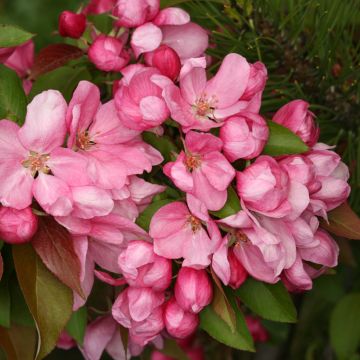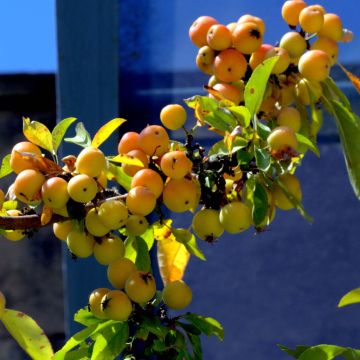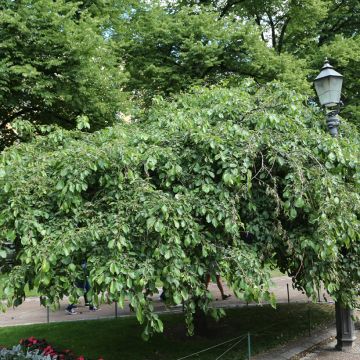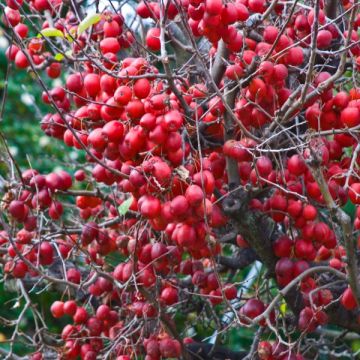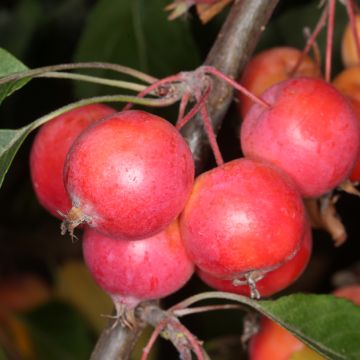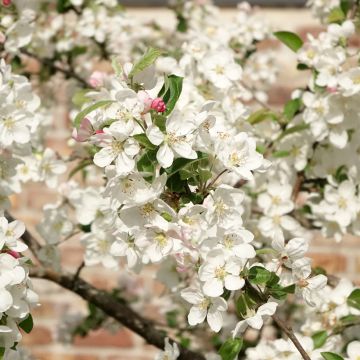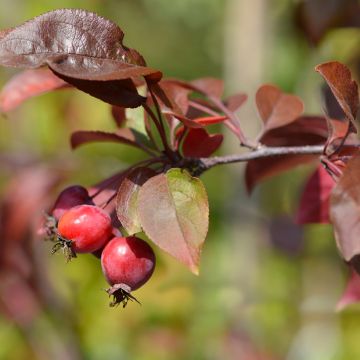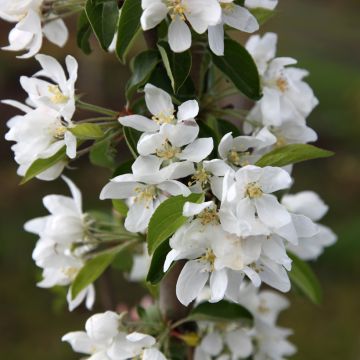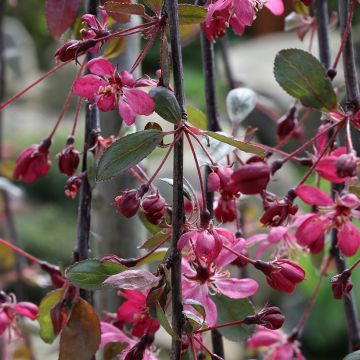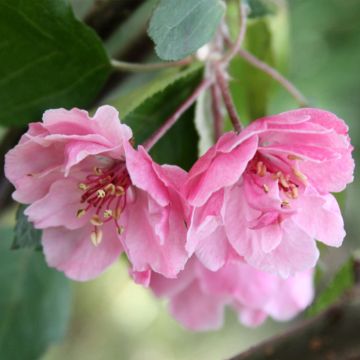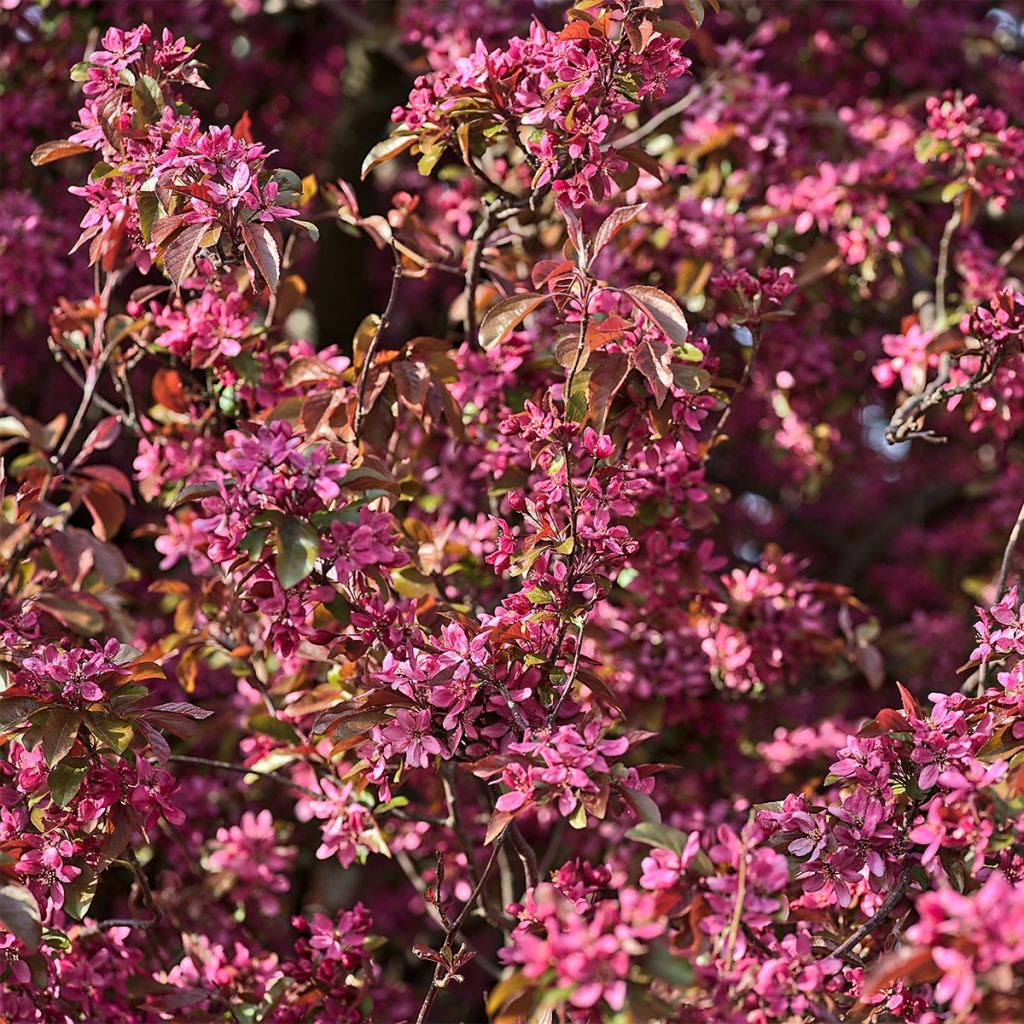

Malus Diable Rouge
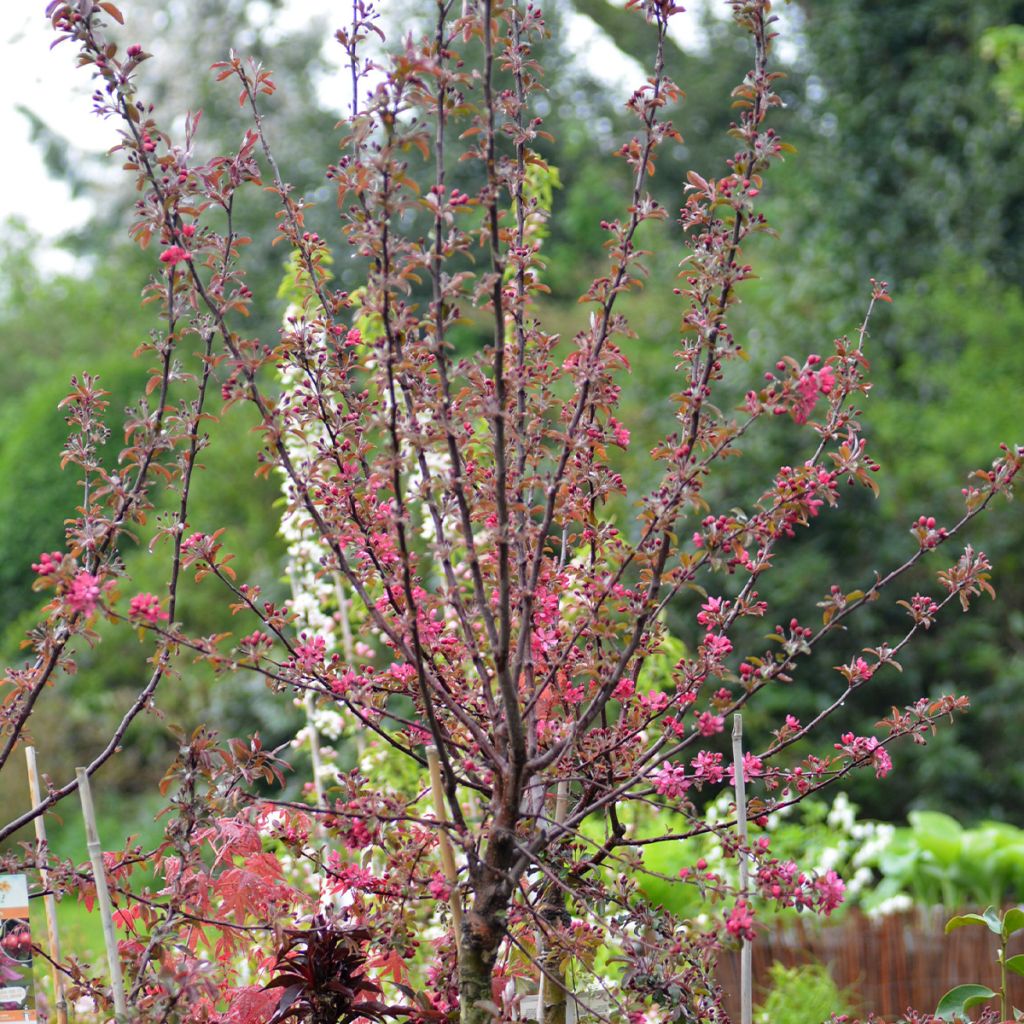

Malus Diable Rouge
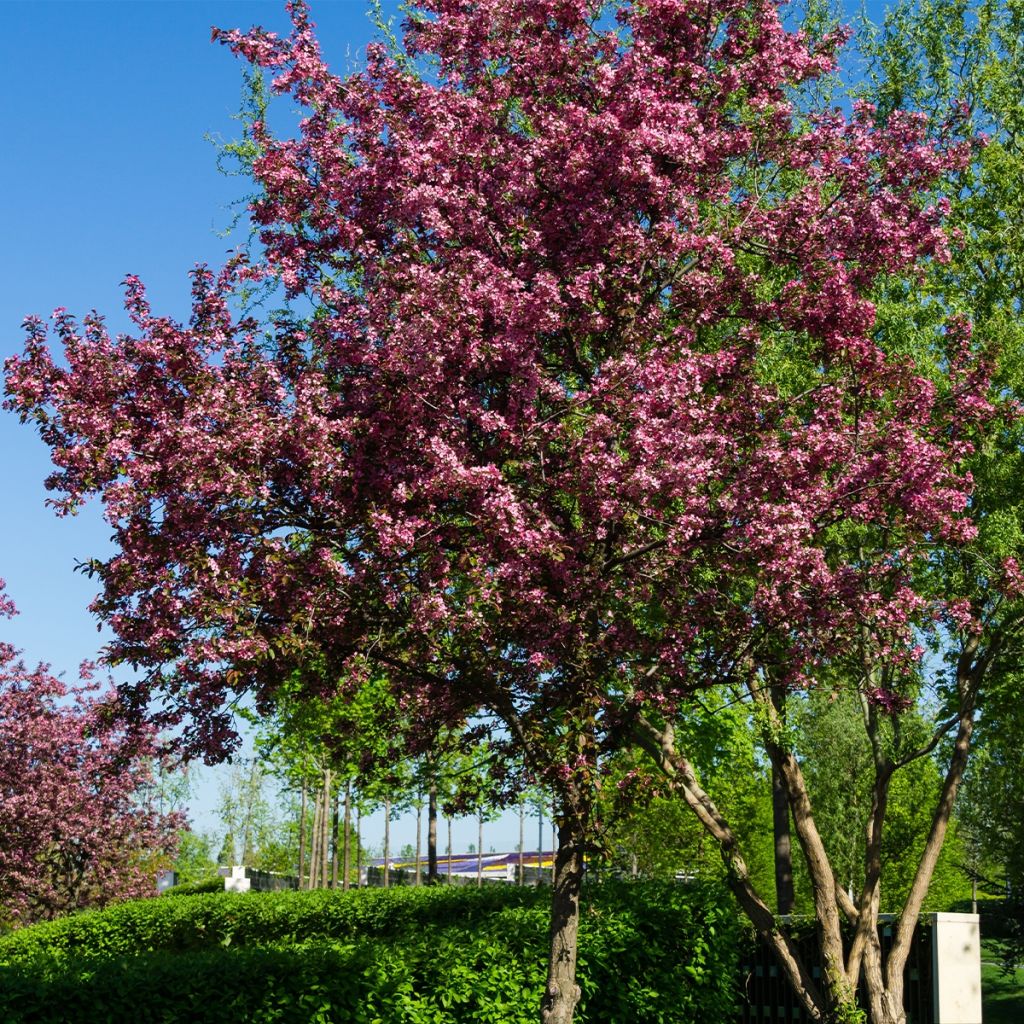

Malus Diable Rouge
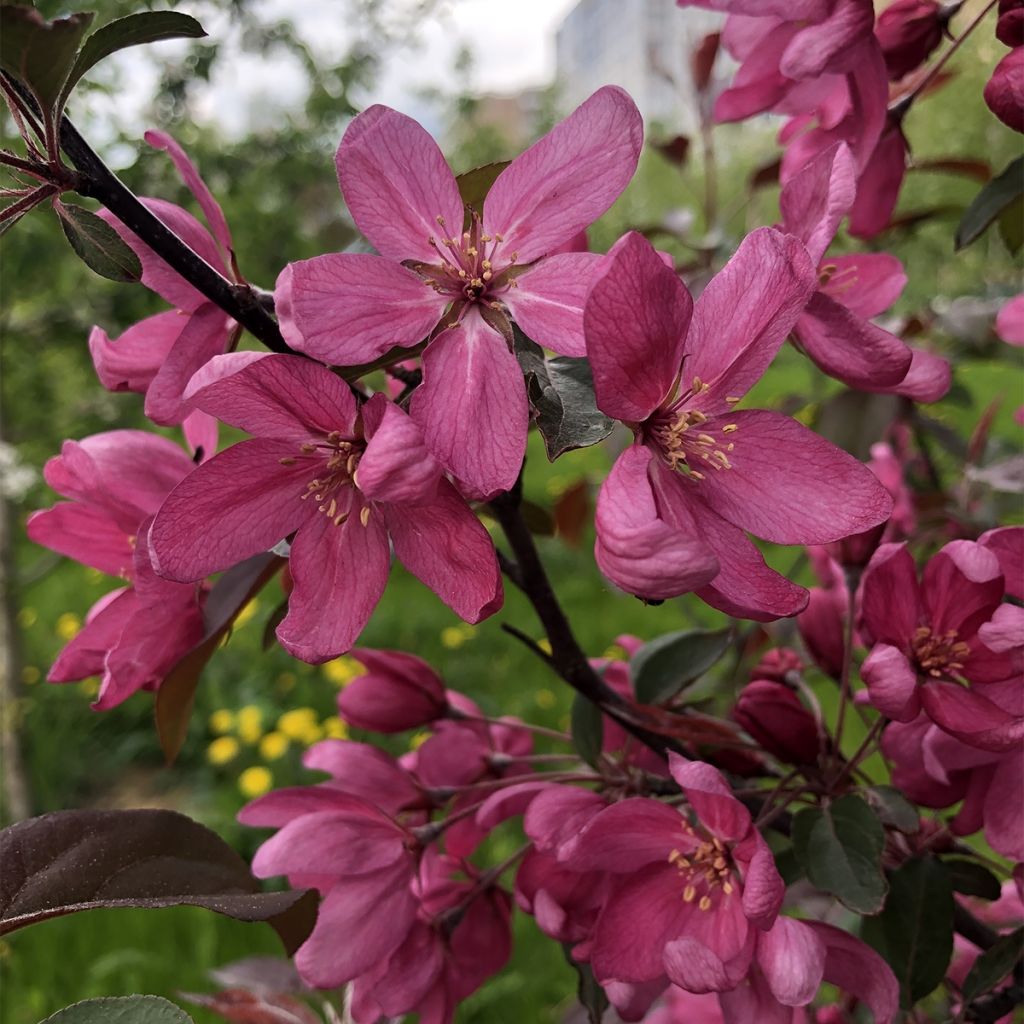

Malus Diable Rouge
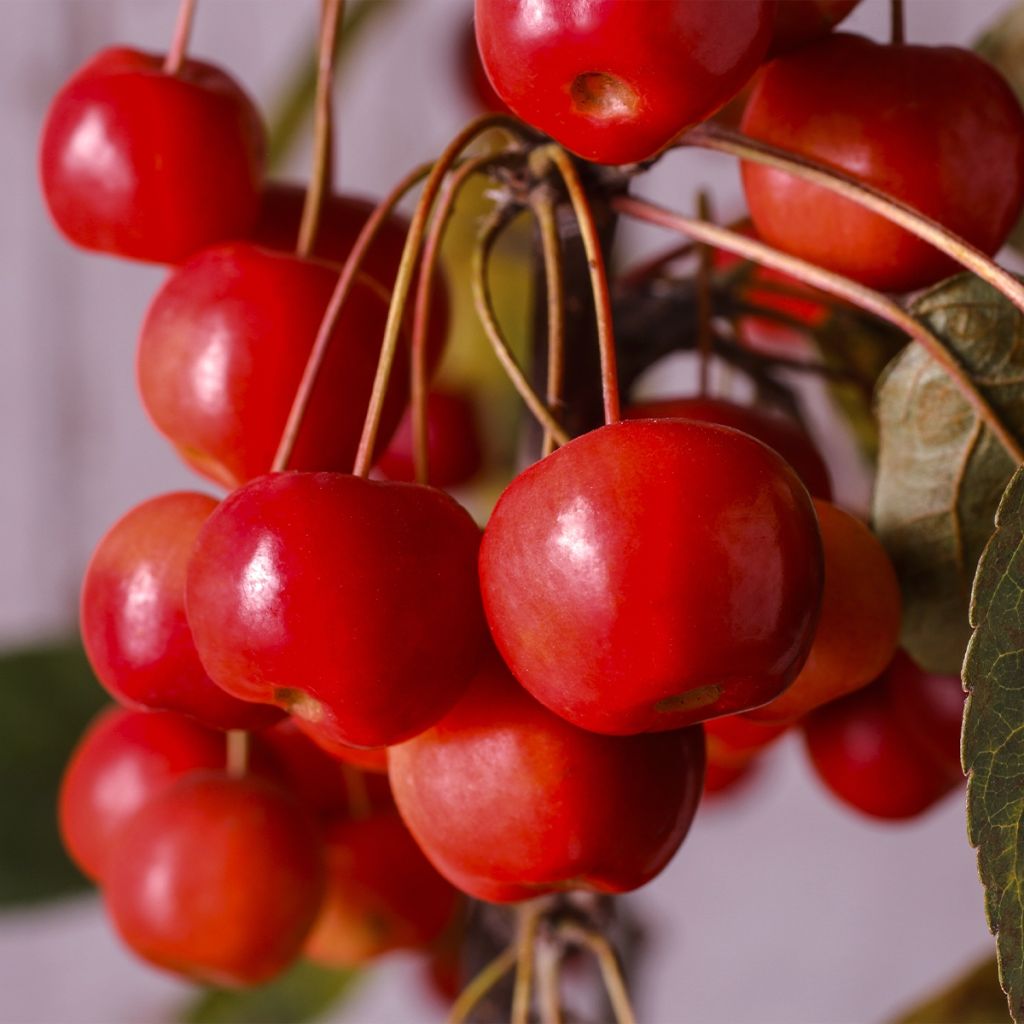

Malus Diable Rouge
Malus Diable Rouge
Malus Diable Rouge
Pommier d'ornement, Pommier à fleurs
The packaging was terrible for this apple tree, arrived with 4 broken branches. I knew Promesse de Fleurs in its early days when everything was perfect, but now there are major shortcomings in packaging or plant quality.
Dominique, 15/11/2024
Special offer!
Receive a €20 voucher for any order over €90 (excluding delivery costs, credit notes, and plastic-free options)!
1- Add your favorite plants to your cart.
2- Once you have reached €90, confirm your order (you can even choose the delivery date!).
3- As soon as your order is shipped, you will receive an email containing your voucher code, valid for 3 months (90 days).
Your voucher is unique and can only be used once, for any order with a minimum value of €20, excluding delivery costs.
Can be combined with other current offers, non-divisible and non-refundable.
Home or relay delivery (depending on size and destination)
Schedule delivery date,
and select date in basket
This plant carries a 24 months recovery warranty
More information
We guarantee the quality of our plants for a full growing cycle, and will replace at our expense any plant that fails to recover under normal climatic and planting conditions.

Would this plant suit my garden?
Set up your Plantfit profile →
Description
The Malus Diable Rouge is an ornamental apple tree with many qualities. In April, it is covered in dark red flowers, on a juvenile foliage that is also purple. The leaves then turn green, and in autumn they take on a yellow color. Finally, numerous small dark red decorative fruits persist until late in the year. Another advantage of this ornamental apple tree is its compactness, which allows it to fit into any small garden. Adaptable to different types of soil, loving sunny exposures, very hardy, it is a particularly desirable shrub or small tree.
Apple trees belong to the large family of Rosaceae, which is well represented in our latitudes and has both environmental and economic importance. It includes many wild species from our countryside (sorb, blackthorn, wild rose), as well as plants with food purposes, fruit trees (apple trees, pear trees, cherry trees, apricot trees) or small fruits (raspberries, strawberries, blackberries). And of course, our ornamental gardens owe many gems to this family, such as the rose, queen of flowers, cotoneasters, pyracanthas, amelanchiers and ornamental apple trees.
'Diable Rouge' is a valuable variety for small spaces, due to its limited growth. As a large shrub or small tree, this apple tree forms a cone shape that widens more or less with age, reaching a height of 4m (13 ft 1 in) and a spread of 3m (9 ft 10 in). It exhibits a spectacular flowering in April, covered in dark red flowers that outshine the young, purple leaves. The single flowers with 5 petals compensate for their small size (about 3cm (1.2 in)) with their profusion, covering all the branches of the shrub. Gradually turning green, the slightly toothed oval leaves turn yellow in autumn. This season is also brightened by the numerous small fruits, 1cm (0.4 in) in diameter, with a shiny dark red color, covering the branches until the end of the year.
This beautiful flowering apple tree grows in all types of soil, preferably clayey and well-drained, and appreciates some humidity to thrive. During the first two years, it will need regular watering to promote good rooting. It should be planted in a sunny location to promote flowering.
This little gem of an ornamental apple tree can be integrated into a countryside hedge by being pruned every year to contain its growth. In a small garden, it will also be very decorative planted isolated on a short grass meadow. Its limited growth also allows it to be mixed in a flower bed with shrubs that flower at different times, covering the entire season. An Abeliophyllum distichum will open the season with its white flowering in February-March, resembling that of the Forsythia. A Kolkwitzia 'Pink Cloud' will take over from the apple tree in May-June with its profusion of small pale pink flowers. An Hibiscus syriacus will provide a spectacle in summer, with its many varieties offering a wide choice of flower colours. And to end the year, a laurier-tin 'Gwenlian' will brighten the flower bed with its beautiful bunches of small flowers highlighted by its evergreen foliage.
'Diable Rouge' is a creation of the nurseryman Jean-Pierre Hennebelle, who unfortunately passed away in 2002, a generous and passionate man who knew how to share his love for plants and his region. His nursery in Pas-de-Calais was designed as an experimental garden, where he presented his plants in situ, like in a park. With a spade in hand, he would dig out the desired plant for the enthusiast who came to him for extraordinary plants. A rare place, far from the straight rows of traditional nurseries, now maintained by his sons, Nicolas and Jean-Loup, who continue his work.
Report an error about the product description
Malus Diable Rouge in pictures
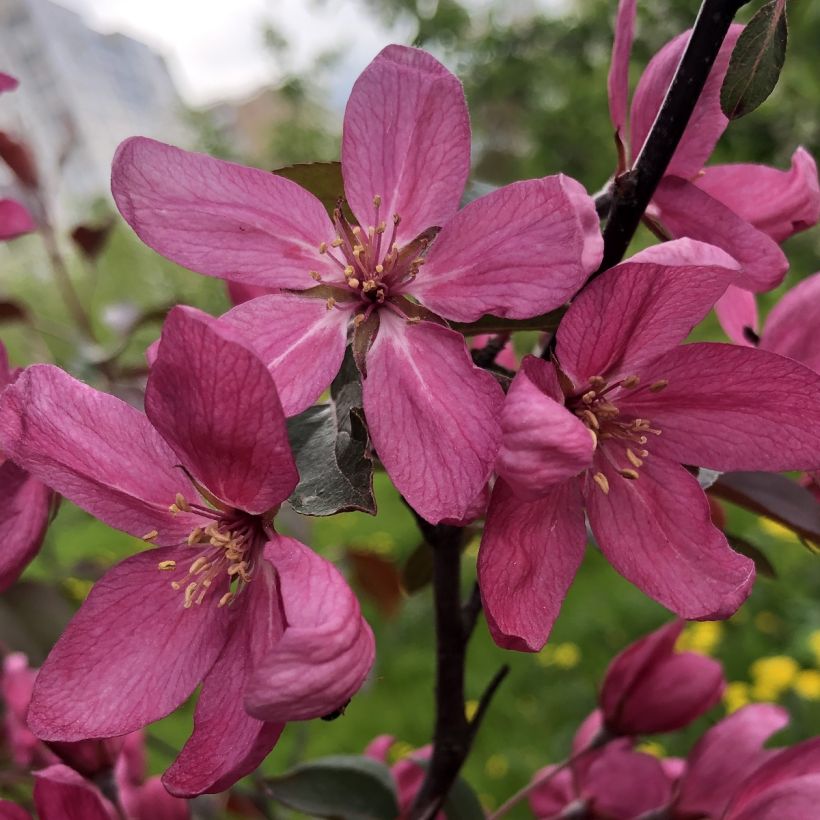

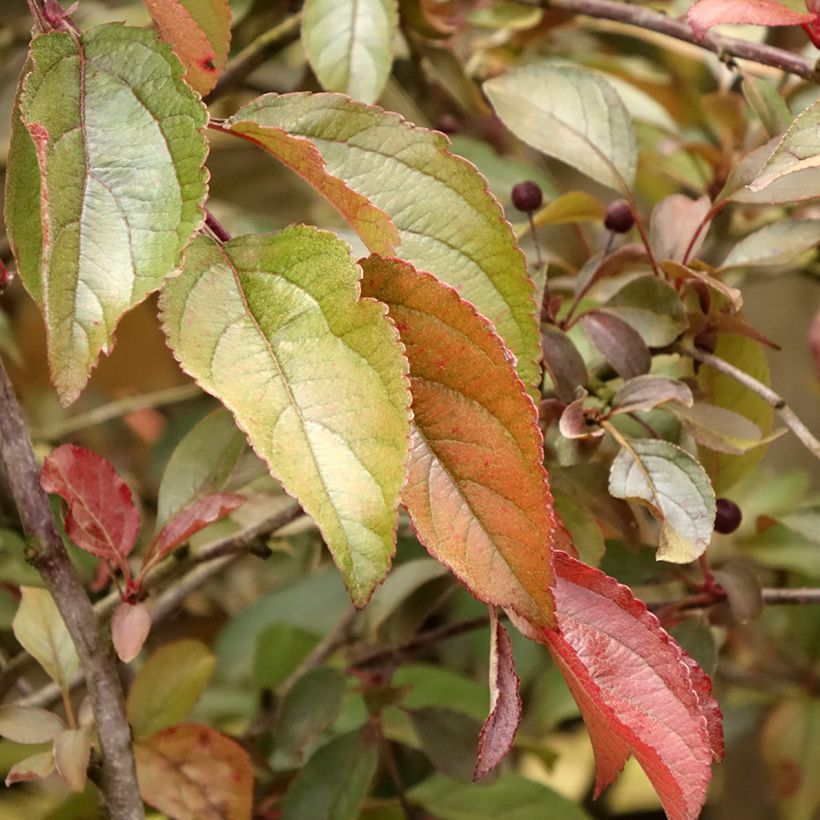

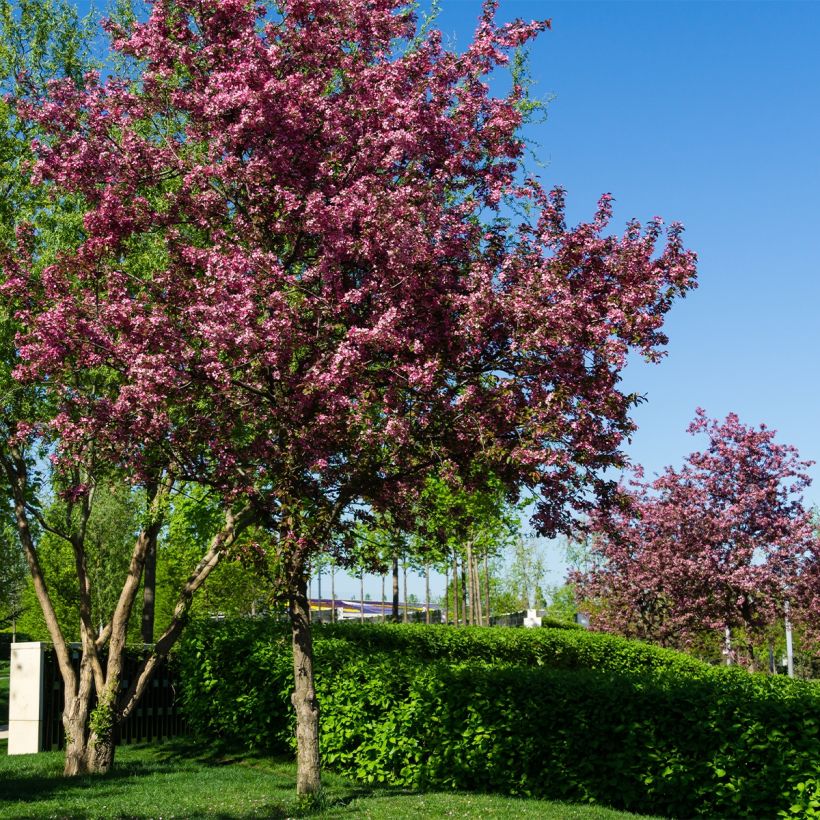

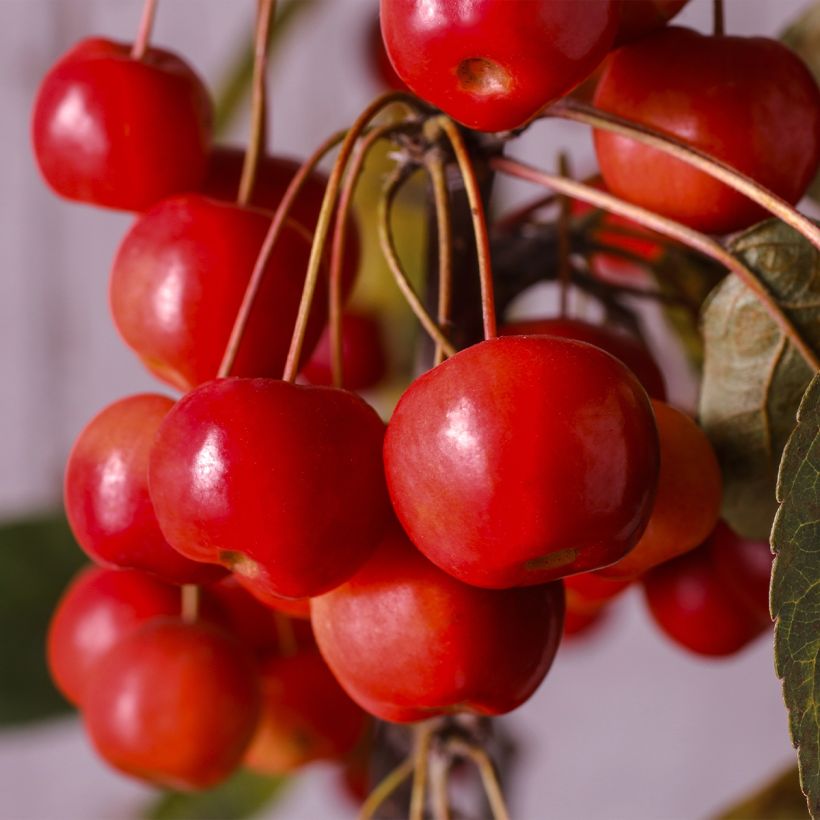

Plant habit
Flowering
Foliage
Botanical data
Malus
Diable Rouge
Rosaceae
Pommier d'ornement, Pommier à fleurs
Cultivar or hybrid
Other Malus - Crabapple
View all →Planting and care
Easy to grow in ordinary but deep soil, the Malus Diable Rouge requires a bright exposure to flower well. Ornamental Malus trees are generally very accommodating, but they like fertile, fresh and deep soil. After careful planting and installation accompanied by regular watering during the first two years, they manage on their own.
Install this Diable Rouge in the sun in fresh, fairly rich but well-drained soil, giving it room to spread out. Dig a large planting hole. If the soil is poor, add compost to the planting soil and apply fertilizer or compost to its base every spring. To prevent diseases, treat with Bordeaux mixture in spring. Prune lightly to potentially regulate the shape or shape the bush, after flowering, avoiding cutting thick branches.
Planting period
Intended location
Care
-
, onOrder confirmed
Reply from on Promesse de fleurs
Haven't found what you were looking for?
Hardiness is the lowest winter temperature a plant can endure without suffering serious damage or even dying. However, hardiness is affected by location (a sheltered area, such as a patio), protection (winter cover) and soil type (hardiness is improved by well-drained soil).

Photo Sharing Terms & Conditions
In order to encourage gardeners to interact and share their experiences, Promesse de fleurs offers various media enabling content to be uploaded onto its Site - in particular via the ‘Photo sharing’ module.
The User agrees to refrain from:
- Posting any content that is illegal, prejudicial, insulting, racist, inciteful to hatred, revisionist, contrary to public decency, that infringes on privacy or on the privacy rights of third parties, in particular the publicity rights of persons and goods, intellectual property rights, or the right to privacy.
- Submitting content on behalf of a third party;
- Impersonate the identity of a third party and/or publish any personal information about a third party;
In general, the User undertakes to refrain from any unethical behaviour.
All Content (in particular text, comments, files, images, photos, videos, creative works, etc.), which may be subject to property or intellectual property rights, image or other private rights, shall remain the property of the User, subject to the limited rights granted by the terms of the licence granted by Promesse de fleurs as stated below. Users are at liberty to publish or not to publish such Content on the Site, notably via the ‘Photo Sharing’ facility, and accept that this Content shall be made public and freely accessible, notably on the Internet.
Users further acknowledge, undertake to have ,and guarantee that they hold all necessary rights and permissions to publish such material on the Site, in particular with regard to the legislation in force pertaining to any privacy, property, intellectual property, image, or contractual rights, or rights of any other nature. By publishing such Content on the Site, Users acknowledge accepting full liability as publishers of the Content within the meaning of the law, and grant Promesse de fleurs, free of charge, an inclusive, worldwide licence for the said Content for the entire duration of its publication, including all reproduction, representation, up/downloading, displaying, performing, transmission, and storage rights.
Users also grant permission for their name to be linked to the Content and accept that this link may not always be made available.
By engaging in posting material, Users consent to their Content becoming automatically accessible on the Internet, in particular on other sites and/or blogs and/or web pages of the Promesse de fleurs site, including in particular social pages and the Promesse de fleurs catalogue.
Users may secure the removal of entrusted content free of charge by issuing a simple request via our contact form.
The flowering period indicated on our website applies to countries and regions located in USDA zone 8 (France, the United Kingdom, Ireland, the Netherlands, etc.)
It will vary according to where you live:
- In zones 9 to 10 (Italy, Spain, Greece, etc.), flowering will occur about 2 to 4 weeks earlier.
- In zones 6 to 7 (Germany, Poland, Slovenia, and lower mountainous regions), flowering will be delayed by 2 to 3 weeks.
- In zone 5 (Central Europe, Scandinavia), blooming will be delayed by 3 to 5 weeks.
In temperate climates, pruning of spring-flowering shrubs (forsythia, spireas, etc.) should be done just after flowering.
Pruning of summer-flowering shrubs (Indian Lilac, Perovskia, etc.) can be done in winter or spring.
In cold regions as well as with frost-sensitive plants, avoid pruning too early when severe frosts may still occur.
The planting period indicated on our website applies to countries and regions located in USDA zone 8 (France, United Kingdom, Ireland, Netherlands).
It will vary according to where you live:
- In Mediterranean zones (Marseille, Madrid, Milan, etc.), autumn and winter are the best planting periods.
- In continental zones (Strasbourg, Munich, Vienna, etc.), delay planting by 2 to 3 weeks in spring and bring it forward by 2 to 4 weeks in autumn.
- In mountainous regions (the Alps, Pyrenees, Carpathians, etc.), it is best to plant in late spring (May-June) or late summer (August-September).
The harvesting period indicated on our website applies to countries and regions in USDA zone 8 (France, England, Ireland, the Netherlands).
In colder areas (Scandinavia, Poland, Austria...) fruit and vegetable harvests are likely to be delayed by 3-4 weeks.
In warmer areas (Italy, Spain, Greece, etc.), harvesting will probably take place earlier, depending on weather conditions.
The sowing periods indicated on our website apply to countries and regions within USDA Zone 8 (France, UK, Ireland, Netherlands).
In colder areas (Scandinavia, Poland, Austria...), delay any outdoor sowing by 3-4 weeks, or sow under glass.
In warmer climes (Italy, Spain, Greece, etc.), bring outdoor sowing forward by a few weeks.






























